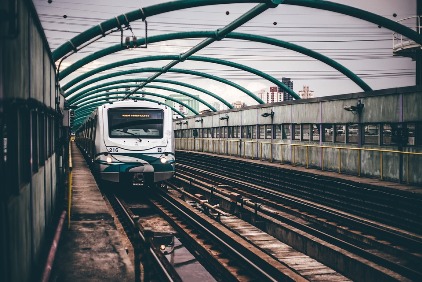To reduce carbon emission by 2.5 crore tone in Mumbai, 3 more metro lines have been launched by Prime Minister Narendra Modi on Saturday. This project would cost over Rs 19,000 crores and has underlined the need to create cities of the 21st century world as without which the nations aim of become a USD 5-trillion economy will remain a pipe-dream.
Modi, who also laid the foundation stone for the Metro Bhavan, said there is a need to create systems to address the concerns of mobility, connectivity, productivity, safety and sustainability in our cities.
The three new metro projects are the Rs 4,476-crores 9.2-km Gaimukh-Shivaji Chowk (Mira Road) metro-10; the Rs 8,739-crores 12.8-km Wadala-CST metro-11; and the Rs 5,865- crores 20.7-km Kalyan-Taloja metro-12 corridor.
These new lines are expected to be completed by 2026, when the megapolis will have 337 km of metro network across 14 lines covering the entire MMR area. With the increase in metros for transport, it will not only save time but will also balance the carbon content in the air.
The 32-storey Metro Bhavan, to come up at the Aarey Colony in the northern suburb Goregaon, will be the integrated operations and control centre of the metro project. Significantly, the Metro Bhawan is coming on a 20,387 sqmt forest land deep inside the Aarey Colony, which is one of the two large green lungs of the nation’s densest city, and will with a developable area of 1,14,088 sqmt.
The project is coming up against strident public protest in the city, blaming the state and city administration for felling tens of thousands of trees in the Aarey Colony– home to hundreds of wildlife species and flora and fauna. The activists fear that the carbon content will rather increase with the vast stretch of tress gone.
Modi said that as the government has set a target to become a USD 5 trillion economy in the next five years, it will have to develop the cities in sync with the 21st century world. For this, the government will have to develop systems to ensure mobility, connectivity, productivity, safety and sustainability.
Speaking about the metro projects, the Prime Minister said that the new metro lines, the Metro Bhavan or the elevated BKC Bridge are all undertaken with a single vision of better connectivity and to make the lives of the travelers easier. He also congratulated the Chief Miniter Devendra Fadnavis for the speedy execution of the various infrastructure projects in Mumbai. The Prime Miniter said that Mumbai is one of the cities that have helped in giving pace to the entire nation. Every Indian loves the city. In the past five years, the government has taken various infrastructure projects which have succeeded in not only helped in meeting the present day needs but also have envisioned for making lives easier in the future.
Modi said no one would have imagined that many much delayed projects like the Navi Mumbai international airport or the trans-harbour link or the Mumbai-Ahmedabad bullet train project would start at this pace and scale. The intent behind the projects is to spend Rs 100 lakh crores to develop infrastructure across the country. These projects are also bringing in employment. For example, the metro project alone has provided employment to 10,000 engineers and 40,000 skilled and unskilled workers.
It can be noted that Modi also rolled out the first of the 500 metro coaches manufactured by Bharat Earth Movers in flat 75 days at it Bengaluru facility. It seems as the government is bent upon reducing the carbon content from the air.
Modi said that the first metro line was developed 35 years ago (in Calcutta) but today, India has nearly 675 km of metro lines operational across 27 cities. Of these, nearly 400 km became operational in the past five years and nearly 850 km are under various stages of construction. In the past five years alone, the government has approved almost 600 km of metro lines.
Addressing the gathering, Fadnavis exuded confidence that by 2020-21 around 120 km of the metro network will be operational. By 2023-24, another 85 km of metro network will commence operations and the rest by 2025. Today 80 lakh passengers are using the suburban rail lines. Once the entire metro network is operational, nearly 100 lakh people will travel on these metro lines. He also said his government is working towards creating an integrated ticketing system designed to create “one-nation, one-card” that can be used for all modes of public transport across the megapolis.
Fadnavis said the Metro Bhavan will be the largest control centre in country monitoring the entire network. There will also be a training centre in the Bhavan where experts from Milan and Singapore will train the metro staff.
Currently, of the 14 metro corridors– civil works on six are underway. These are the Dahisar-DN Nagar metro-2A; DN Nagar-Mandale metro-2B; Colaba-Bandra-Seepz metro-3; Wadala- Kasarvadavli metro-4 corridor, Swami Samarth Nagar-Vikhroli metro-6; and Andheri (East) to Dahisar (East) metro-7 corridor.
Source: Economic Times

